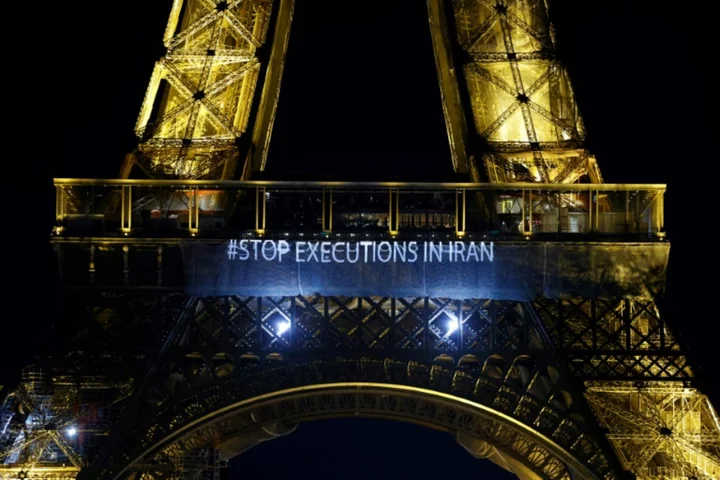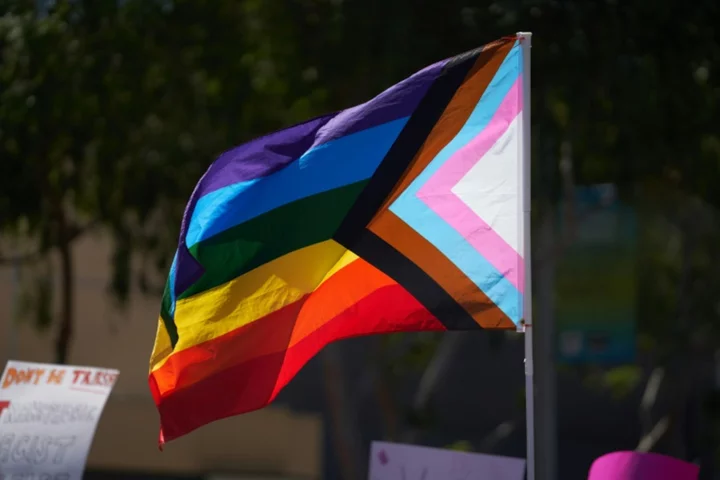One by one, the 10 women, mostly aged under 30, went defiantly to their deaths by hanging in a city square in Shiraz in southern Iran. The youngest was only 17 years old.
They had been charged with crimes including espionage but, for supporters around the world, they were simply being hanged because they were Bahais, and refused to renounce their faith even under pain of death.
On Sunday, Iranian Bahais marked 40 years since the June 18, 1983 executions of the 10 Bahai women in Shiraz, seen as one of the most egregious abuses committed against the non-Muslim minority that has been persecuted ever since the Islamic revolution of 1979.
Their deaths continue to horrify Bahais but also inspire the community as it still struggles against discrimination in daily life in Iran. Bahais hope all Iranian women can draw strength from them after a wave of women-led protests shook the clerical leadership late last year.
"The arduous path to gender equality in Iran has been walked by countless women over the decades. That road has been marked by the sacrifices of those who chose to stand for their principles even over their lives," said Simin Fahandej, the Bahai International Community (BIC) representative to the United Nations in Geneva.
- 'Asked to recant' -
The women had been arrested in October and November 1982, tortured, denied the right to a lawyer and had been offered the opportunity to save their lives by converting to Islam, according to the BIC.
They refused to sign the statements that were prepared for them and were taken on June 18, 1983 from their prison to Chowgan Square in Shiraz where they were hanged one by one in front of each other.
Two days earlier, six Bahai men were executed in the same square, some of them relatives of the 10 women. In all, more than 200 Bahais were executed in the frenzy of hangings that followed the revolution, according to the BIC.
"There is tremendous pride in the faith and selfless courage of the 10 women and their strength in the face of extreme physical and psychological pressure," Anthony Vance, director of the US Bahai Office of Public Affairs, told AFP.
Soosan Sabet, the second cousin of one of the women executed, Akhtar Sabet, who was hanged aged just 25, said she had "good memories" of her relative, a "pure, kind, friendly and sociable person" who worked as a nurse.
"Even in prison, she started serving the elderly and sick people. She would prepare their breakfast, provide medical treatment and wash their clothes," Sabet told AFP.
"During the interrogation, she was asked repeatedly to recant her faith and convert to Islam in order to be released from prison." Akhtar Sabet refused and was hanged.
Ruhi Jahanpour, who was initially held with the women, freed, evaded re-arrest and escaped abroad, described the women as "really ordinary individuals who loved their families, loved continuing their education and loved to live their lives".
When she received news of their execution "it was a terrible shock for me. It was devastating. I knew the girls so well."
But she was not surprised by their decision not to renounce their faith. "When they were confronted with this choice... they were willing to give up their lives. Their life was their faith and their faith was their life."
- 'Severe repression' -
Commemorating the anniversary is particularly important for the Bahais at a time when they say those remaining in Iran are facing a new wave of repression.
The Bahai faith is not recognised by the Iranian authorities, unlike other minority faiths including Christianity, Judaism and Zoroastrianism, even though the community remains the biggest non-Muslim minority in the country.
The Bahai faith is a relatively modern monotheistic religion with spiritual roots dating back to the early 19th century in Iran, promoting the unity of all people and equality.
Iran brands Bahais "heretics" and often accuses them of being agents of arch-foe Israel, as their world headquarters are in the Israeli port city of Haifa.
But the community rubbishes such suggestions, saying Haifa emerged as a centre of the faith well before the state of Israel was established in 1948.
Bahais in Iran complain of official discrimination in their daily lives, making it a struggle to open businesses and even bury their dead, and they are also systematically denied access to higher education in Iran.
Persecution also intensified last summer with arrests and raids, according to Vance.
Mahvash Sabet and Fariba Kamalabadi, former members of a long disbanded, informal leadership group of the Bahais of Iran, who had previously each served 10-year sentences from 2008 to 2018, were re-arrested and sentenced to another 10 years in prison.
"The repression today is severe and comprehensive, as it invades almost all aspects of daily life for Bahais," said Vance.
sjw/giv/kir/smw









